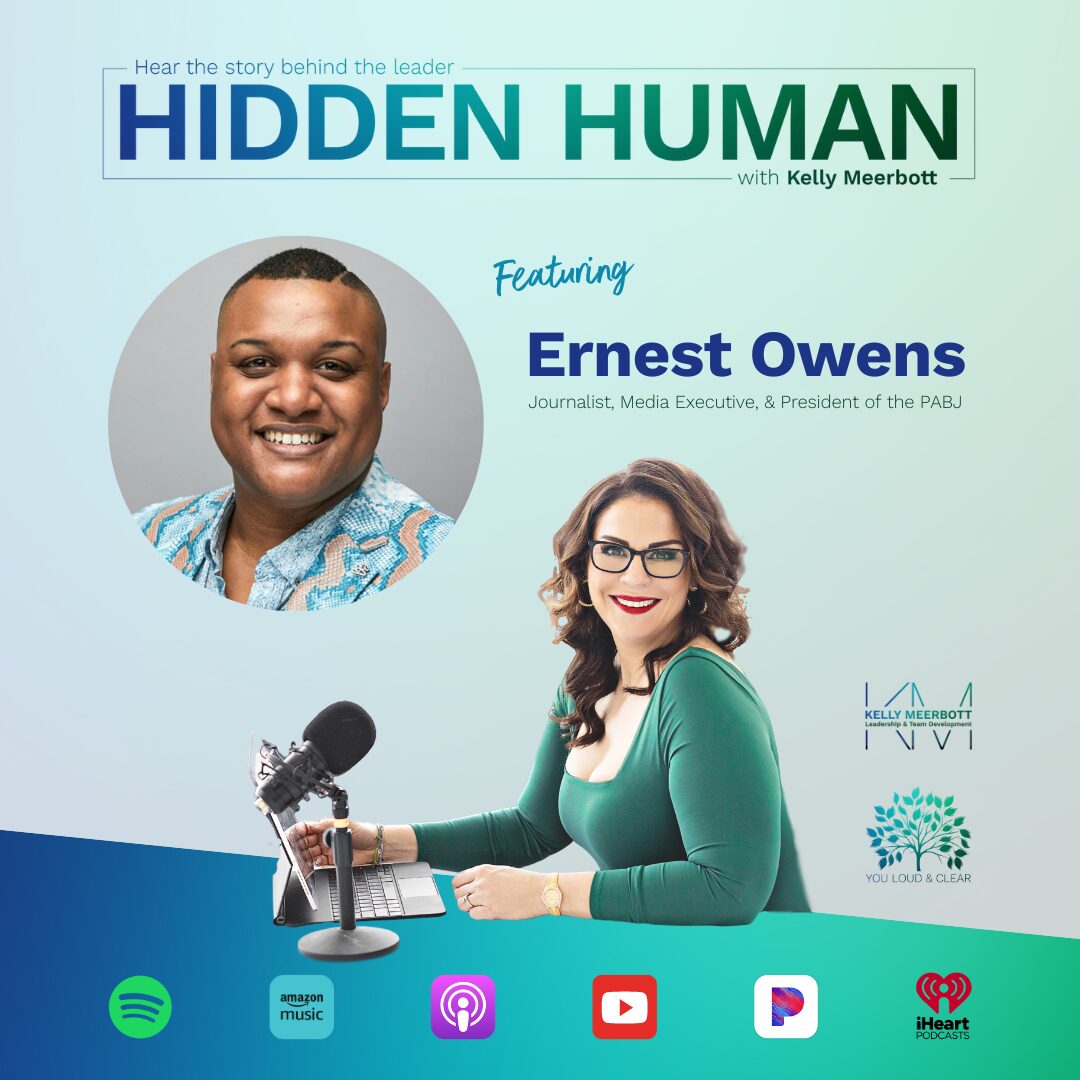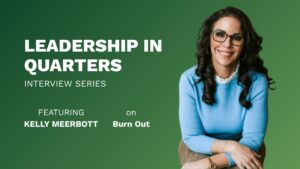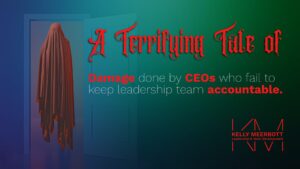In this episode, Kelly Meerbott sits down with award-winning journalist and author of Cancel Culture, Ernest Owens, to discuss his career journey and the importance of creative control and inclusivity in journalism. They delve into his insights on navigating career paths, the challenges faced by nonprofit journalists, and the impact of canceled culture and class anxiety on society. Ernest and Kelly also explore the evolving landscape of journalism, the importance of understanding power dynamics in conflict resolution, and the significance of empathetic and authentic leadership. They highlight the need for a holistic system that supports professional growth and well-being. Don’t miss this fascinating episode of Hidden Human!
TRANSCRIPT
Kelly Meerbott: Welcome to the space where we reveal our personal humanity to connect with our shared humanity. It is my pleasure to introduce Ernest Owens, an award-winning journalist and CEO of Ernest Media Empire. He is the editor of Eater Philly, political writer-at-large for Philadelphia Magazine, and the youngest president of the Philadelphia Association of Black Journalists. He also serves as the regional vice president of the National Academy of Television Arts and Sciences for the Mid-Atlantic chapter. He is a proud member of Alpha Phi Alpha Fraternity, Inc. Additionally, he is the executive producer and host of the hit podcast “Earnestly Speaking,” and hosts Philadelphia City Council live on WURD Radio. He is the author of the book “The Case for Cancel Culture,” published by St. Martin’s Press, an imprint of Macmillan Publishers. As an openly Black gay journalist, he has made headlines for speaking frankly about intersectional issues in society regarding race, LGBTQIA, and pop culture. In 2018, he launched his growing media company specializing in multimedia production, consulting, and communications. Let’s begin our conversation with one of my most favorite people in the world and a gift to humanity, Ernest Owens. I am ready to have this conversation with not only a great colleague and a great human but a great friend. And I wanted to add something. He is a proud life member of Alpha Phi Alpha Fraternity. Mr. Ernest Owens, welcome back to Hidden Human.
Ernest Owens: Thank you so much for having me. It’s fabulous to be here.
Kelly Meerbott: Yeah. And I wanted to tell you, so last week, Brian’s teaching in West Philly at Anderson Elementary, and they had a last-day carnival. And the Alphas were there. I walked up and was like, do you know my friend Ernest Owens? And they were like, we’ve heard of him and seen him. It was just really cool, that full-circle moment. The oldest Alpha there was 81 and he was out there. Of course, I was like, do you have water? Are you hydrated? He was like, we’re good. Okay, let me talk to you about your personal journey. Will you share with me a pivotal moment in your career that changed the trajectory of the way you were going and what you learned from it?
Ernest Owens: That’s a really good question. I think I’ve been reflecting on that lately. It always changes, but I think it probably would have been 2017-2018 when I decided to start my company. I was already familiar with the name “Ernest Media Empire.” It was always something my friends and I would reference. It was something I always joked about. But I decided to really make the transition after several years of freelancing and getting a lot of these contracts. I just loved what I was doing. For a while, people were thinking, “Well, you’re doing this to get a full-time position at a particular company.” But I fell in love with what I was doing. I realized I didn’t want to work for companies; I wanted to work with them. I found a unique sense of freedom and autonomy creatively by being able to produce for various places, control my schedule, and control my peace of mind. When I decided to take it seriously and realized I could write some of this off for taxes, I thought, this could be a business. That’s when I took that initiative. Once I established that, everything else started moving. It’s given me a sense of satisfaction and pleasure in my work because I don’t feel like I have to answer to anyone but myself. That grounded me. That was the pivotal moment when I realized I was comfortable with where I was.
Kelly Meerbott: You and I have talked about how we were orbiting around each other but didn’t meet until 2021. What I have found really interesting is that distinction of working with media companies because you and I both know all these media companies are doing layoffs. You’ve built this almost like a boundary around you, not a fence, but it has almost protected you from that. Do you agree?
Ernest Owens: 100%. Very early in my career, when I was in college, I was freelancing and saw massive layoffs in the industry. I didn’t want to work full-time for local publications. Even when I graduated, I thought places like The New York Times or Rolling Stone might be the destination. But I was making good money and was happy with the work I was doing. I didn’t need to change this up. There was no reason to change other than industry advice from people who didn’t understand what I was doing. Once I educated myself more about how to run a business and make this work on a higher level, I realized this was what I wanted to do. I wasn’t going to work full-time for a media company. I would work for myself. That has allowed me to avoid the layoffs and HR problems others face, especially as a young Black journalist. I can advocate for people who have different circumstances. Some need benefits or other reasons to work for companies. I’m fortunate to have benefits through my husband, who works for the city. People have different career paths and reasons for their choices. I believe in a holistic system where everyone can find a place that works for them, whether it’s a company or being an entrepreneur. I always tell people that a successful journalist or professional is someone working in a place that is uplifting, paying them equitably, and providing growth opportunities. For me, that was Ernest Media Empire. For others, it might be Comcast or Verizon. The key is finding what works for you and understanding why.
Kelly Meerbott: It’s programming and conditioning. Get married, have kids, the house, all that stuff. It’s just not true. It’s whatever works for you.
Ernest Owens: Absolutely. Everybody’s circumstances are different. When I understood my unique circumstances, it helped me understand others’ journeys and advise them accordingly. Some want to freelance, some want to work for multiple companies, and some never want to work for a media company full-time. I’ve never worked full-time for a media company in journalism; everything has been contracted or freelance.
Kelly Meerbott: Definitely. I worked for Clear Channel for 11 years and joke now that I’m unemployable. I’d be like, why are you doing it like that? No, I’m not going to do that. Whereas now, and I wanted to talk to you about this, about bad actors in journalism. You posted something about how podcasters are not journalists. Because there’s such a lack of media literacy, and I got learning from you, how can you tell a true journalist? There’s this narrative about crooked media, which I don’t believe. How can the average person tell if someone is a reputable journalist worth listening to?
Ernest Owens: Who are they accountable to? That’s the first source. Anything I put out has accountability. Even though I’m independent, I prefer to send my information through reputable outlets. And if it’s independent, it’s my company, my podcast. If someone is just out there saying whatever, with no sourcing, no verification, they’re not someone to believe off the top. Another thing is that all journalism is media, but not all media is journalism. Some stuff is meant to entertain or incite, while journalism aims to inform. The medium does not dictate journalism; it’s the purpose behind it.
Kelly Meerbott: I always tell my clients to follow the money. Who is funding the organization? That makes a difference as well. What you see in some places, even though Philadelphia Magazine does this well, is promotions for advertisers. There’s conflation there.
Ernest Owens: Yes, broadcast is a little different. In print, there’s a clearer wall and distinction. I haven’t experienced being told to not cover something because of an advertiser. That’s more common in arts and entertainment media spaces where relationships with advertisers can influence coverage. But I haven’t had those experiences.
Kelly Meerbott: Can you walk me through your decision-making process, especially in critical moments, and how you decide what opportunities to take? You’re very intentional about everything. You have so many opportunities with Eater, PABJ, Philadelphia Magazine. How do you decide, especially when things are critical, what to take and run with?
Ernest Owens: It has to excite me. If it doesn’t excite me, I won’t do it. It has to be feasible; do I have the time and ability to do it? And it has to make an impact. If it meets those three criteria, I say yes.
Kelly Meerbott: Your energy comes through in your work. I’m curious about your decision to become president of PABJ. Why was that important to you personally and professionally? And where do you see the future of the organization going?
Ernest Owens: I felt the organization was losing its advocacy slant. The leadership worked full-time for local media companies, making it hard for them to hold these companies accountable. There were missed opportunities to speak up on issues. Being independent, I could take that role and push for more advocacy. Diversifying our revenue streams has freed us from being beholden to media companies. We’ve raised our profile, gained more members, and increased financial support. We’re independent and focused on meeting people where they are, providing resources and opportunities. The future is bright, with continued advocacy and support for black and brown journalists. The gala is on Saturday, November 9, the 50th anniversary.
Kelly Meerbott: It’s always fun and full of incredible people. And I want to talk about your book, “The Case for Cancel Culture.” I didn’t fully understand what cancel culture was until I read it. You break down how Republicans and Democrats cancel, using the digital landscape to hold bad actors accountable. Can you explain how this democratic tool works to liberate us all?
Ernest Owens: Cancel culture is sophisticated. It’s not impulsive; it’s about power dynamics, institutional structures, and cults of personality. It’s a tool for accountability. It’s not about everyday people but public figures and large organizations. The book argues that cancel culture is necessary and has been misunderstood and misrepresented.
Kelly Meerbott: You stay calm in the middle of chaos. How do you do that?
Ernest Owens: It’s a skill I’ve developed over time. I’ve seen a lot of chaotic things and learned to stay grounded. I focus on how I want to show up in situations. I’ve seen smoke without fire and fire without smoke. I recognize that nothing is irreparable, and I approach situations with the mindset of finding a resolution. I stay calm by trusting my gut and leading with conviction and compassion.
Kelly Meerbott: You elevate the people around you. I’m grateful for you and everything you do. Okay, let’s do some rapid-fire questions. What’s your favorite comfort food?
Ernest Owens: It changes, but right now, a fresh fruit salad.
Kelly Meerbott: What books are on your nightstand?
Ernest Owens: I try to read Pulitzer Prize winners of the year. Currently, “His Name is George Floyd,” “King: A Life,” and others.
Kelly Meerbott: What songs are on your playlist?
Ernest Owens: “Sunshine” by Allie and AJ, Ariana Grande’s new album, Taylor Swift’s new album, and always Janet, Celine Dion, and Sarah McLachlan.
Kelly Meerbott: What are you grateful for right now?
Ernest Owens: I’m grateful for having the last word on many things. I’m grateful for my ability to trust my gut and lead with conviction. I’m grateful for the opportunities I’ve had and the impact I’ve made.
Kelly Meerbott: Thank you so much for your time, Ernest. Thank you to our audience for listening. It’s our intention on Hidden Human to inspire you to go out and have authentic conversations to deepen the connections in your life. Thank you again, Ernest, and make it a great day.
